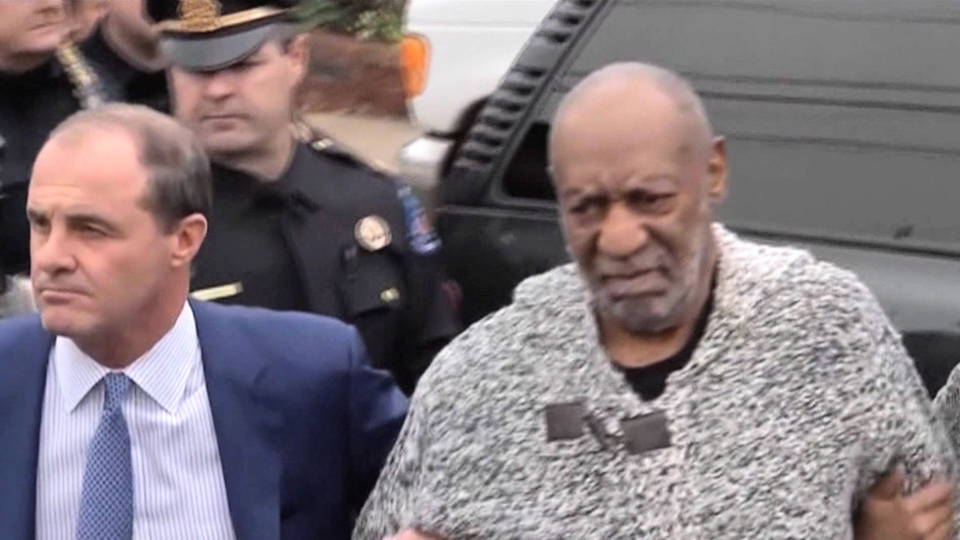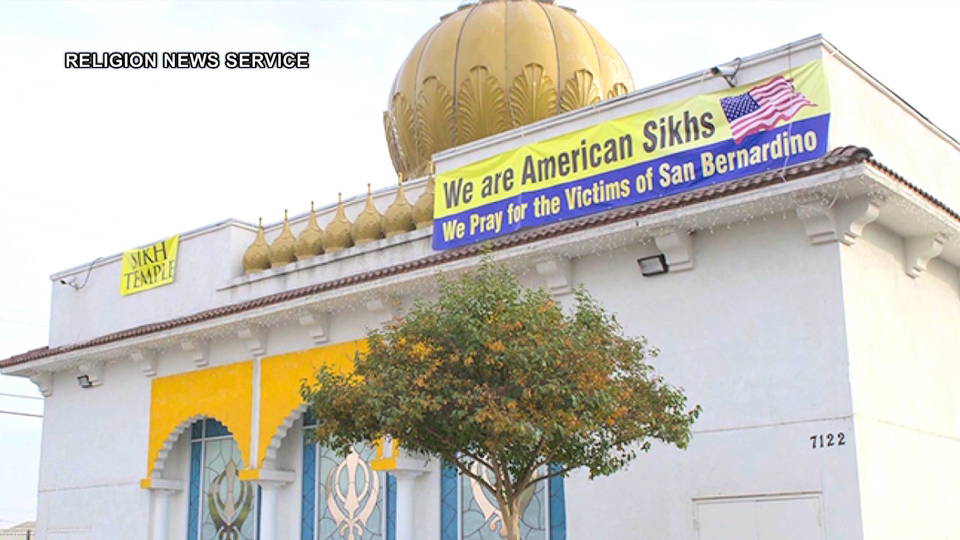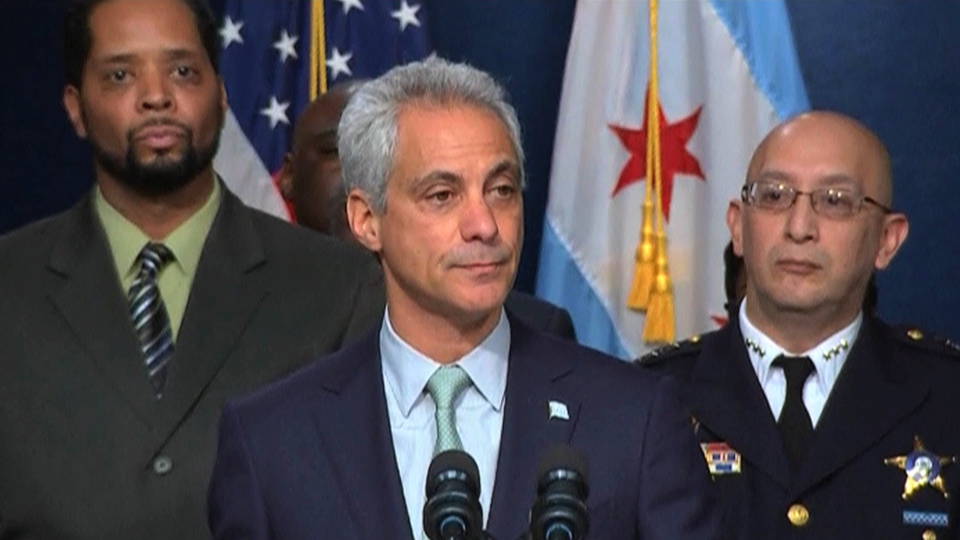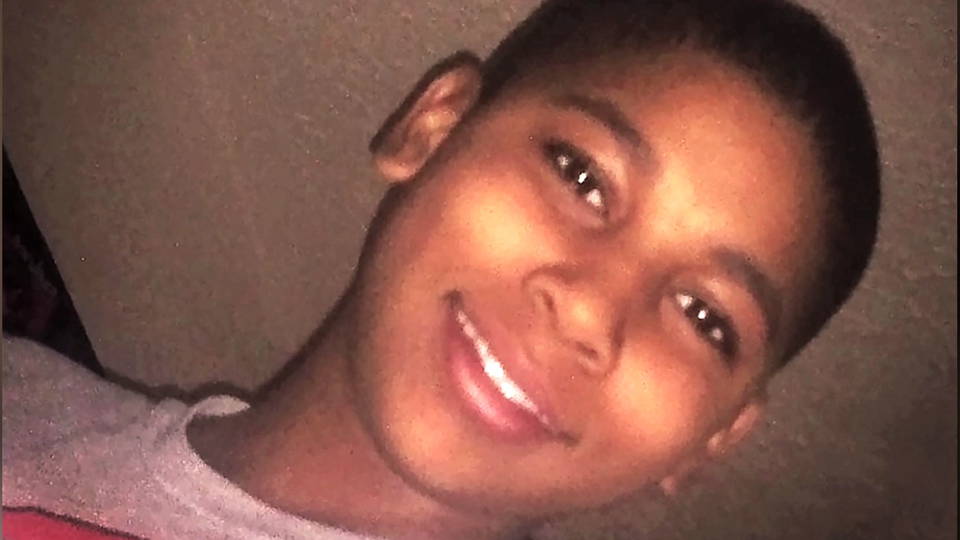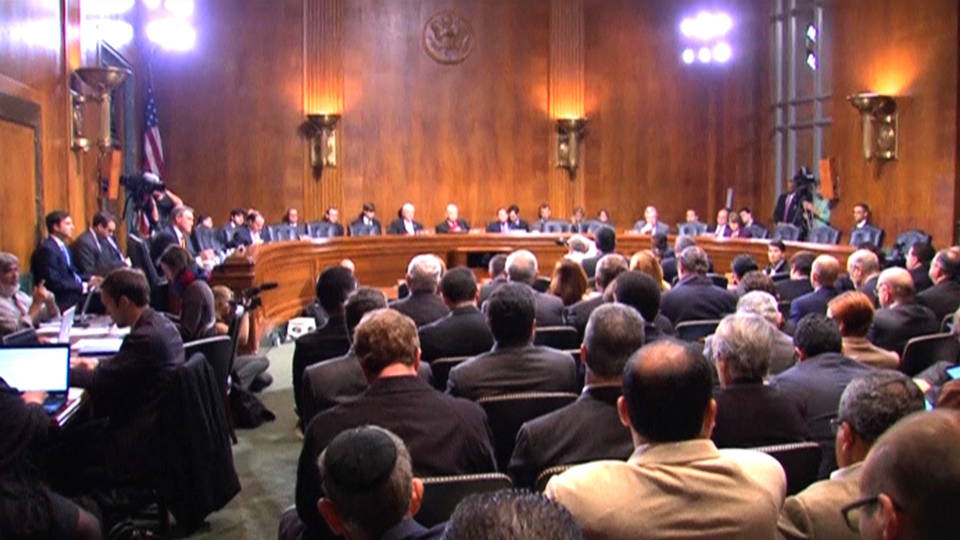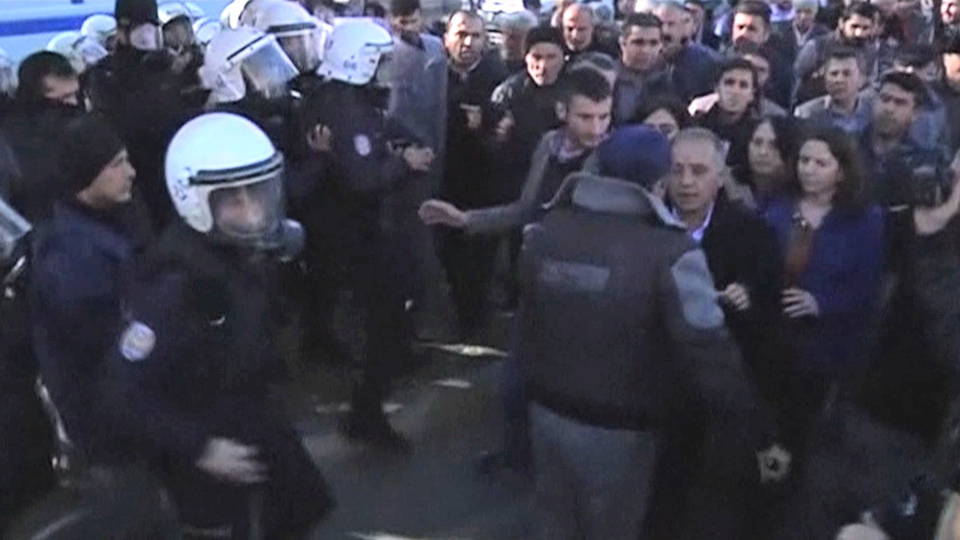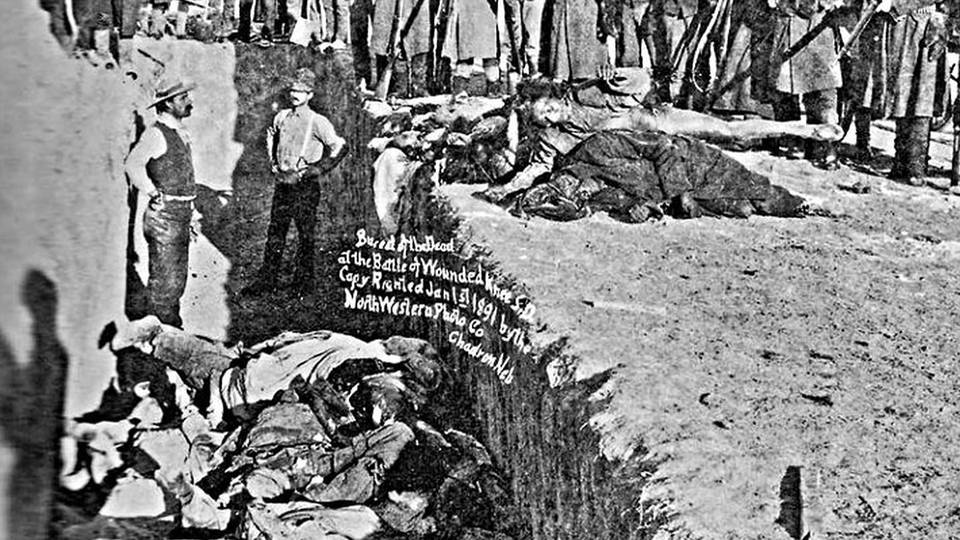Democracy Now! Daily Digest: A Daily Independent Global News Hour with Amy Goodman & Juan González for Thursday, December 31, 2015
democracynow.org
Stories:

Exxon's Climate Cover-Up Just Got Bigger: Docs Suggest All Major Oil Giants Have Lied Since 1970s
2015, the hottest on record, was also the year ExxonMobil was caught in a more than three-decade lie. Internal documents revealed Exxon knew that fossil fuels cause global warming in the 1970s, but hid that information from the public. Now it turns out that Exxon isn’t alone. A new exposé from InsideClimate News reveals nearly every major U.S. and multinational oil and gas company was likely aware of the impact of fossil fuels on climate change at the same time as Exxon. We are joined by Neela Banerjee, the InsideClimate News reporter who broke this story.
TRANSCRIPT
This is a rush transcript. Copy may not be in its final form.
AMY GOODMAN: On this last day of the year, 2015 will be remembered as a pivotal one for the environment—the warmest year on record. In only the last few days, we’ve seen an historic storm hurtling toward the North Pole, threatening to warm temperatures by more than 50 degrees above average there, while in South America a massive drought has fueled wildfires across Colombia, which has issued a red alert for more than 80 percent of the country, and at least 24 people have died in Missouri and surrounding states amidst the worst flooding in two decades, while rare tornadoes killed 11 people in Texas over the weekend. And that’s only in the last five days.
The year 2015 ended with the U.N. climate treaty in Paris. It will also be remembered as the year ExxonMobil, one of the corporations with major responsibility for climate change, was caught in a more than three-decade lie. Exposés by the Pulitzer Prize-winning InsideClimate News and the Los Angeles Times revealed how Exxon concealed its own conclusions that fossil fuels cause global warming, alters the climate and melt the Arctic. Exxon knew about climate change as early as 1977. But instead of taking action, the oil giant lied to the public and funded bogus climate denial—paid for by the billions it made from practices it knew were harming the planet.
Now a new investigation reveals that in the oil industry, Exxon was not the only one with something to hide. InsideClimate News reports nearly every major U.S. and multinational oil and gas company was likely aware of the impact of fossil fuels on climate change as early as the late '70s. From ’79 to ’83, the oil and gas industry trade group American Petroleum Institute ran a task force to monitor and share climate research. The group's members included senior scientists and engineers from not only Exxon, but also Amoco, Phillips, Mobil, Texaco, Shell, Sunoco, Sohio and Standard Oil of California, as well as Gulf Oil, the predecessor to Chevron. Internal documents show that as early as 1979 the task force knew carbon dioxide in the atmosphere was rising steadily. The task force even briefly considered researching how to introduce a new energy source into the global market, given the research about fossil fuels’ impact on global warming. But in 1983, the task force was disbanded, and by the late ’90s, the American Petroleum Institute had launched a campaign to oppose the Kyoto Protocol, which was adopted by many countries to cut fossil fuel emissions, but was never ratified by the United States.
The Exxon revelations prompted the opening of a criminal probe in New York over whether the oil company lied to the public and its investors. Exxon’s climate deception has also sparked calls for a federal probe similar to the one that led to a racketeering conviction of Big Tobacco for hiding the dangers of smoking. With these new revelations [about] Exxon’s oil industry peers, could more companies be targeted for investigation?
For more, we’re joined by the reporter who broke the story. Neela Banerjee is a Washington-based reporter with InsideClimate News. Her latest exposé, "Exxon’s Oil Industry Peers Knew About Climate Dangers in the 1970s, Too."
Neela, tell us just what you found.
NEELA BANERJEE: We found that as early as 1979, the oil industry—oil companies, through the American Petroleum Institute, wanted to explore the emerging science around rising carbon dioxide in the atmosphere. And we saw this through documents that we found as part of our Exxon research. And through that, we also found the former API employee who was the director of the task force for those four years. He was—the task force was part of a broader air quality effort at API, and he filled out the picture for us, too, and that, you know, they wanted to follow the science, but that some were probably—were already doing their own modeling, though it was not as ambitious as what Exxon was doing at its site.
AMY GOODMAN: Neela, you spoke with James J. Nelson, the former director of the American Petroleum Institute’s task force on climate change, who left API in '83. He described a shift that was taking place at the time: quote, "[API] took the environmental unit and put it into the political department, which was primarily lobbyists. They weren't focused on doing research or on improving the oil industry’s impact on pollution. They were less interested in pushing the envelope of science and more interested in how to make it more advantageous politically or economically for the oil industry," unquote. Expand on that.
NEELA BANERJEE: Right. And, you know, what Mr. Nelson said was that he didn’t have any issue with that. He thought that that was the right tack to take, because at that time, even though it was under the Reagan administration, the power of the EPA and regulators was growing, and so the industry felt that it was not being properly heard. And they were trying to introduce science, they were trying to get research done, they were trying to have their papers published in peer-reviewed journals. And, you know, his viewpoint, and that of the industry, was that they were—that they couldn’t get their voices heard, and they were worried about overregulation. So, rather than having scientists work on a task force and engage with policymakers, the best way to do this was to have lawyers and lobbyists, you know. And that’s how Mr. Nelson helped fill out the picture from the documents we had.
AMY GOODMAN: I want to go to the late '90s and look at the oil industry's role in opposing the Kyoto Protocol, which was adopted by many countries to cut fossil fuel emissions, but was never ratified by the United States. A draft action plan circulated by the American Petroleum Institute at the time read, quote, "Unless 'climate change' becomes a non-issue, meaning that the Kyoto [Protocol] is defeated and there are no further initiatives to thwart the threat of climate change, there may be no moment when we can declare victory for our efforts," they said. The American Petroleum Institute was part of a lobbying group called the Global Climate Coalition, which included Exxon and other companies. As you write in your article, Neela Banerjee, a 2001 briefing memo quotes a top State Department official thanking the GCC because Bush, quote, "rejected the Kyoto Protocol in part, based on input from you." Explain what this memo said.
NEELA BANERJEE: This memo talked about how to influence the public—and, I think, policymakers and scientists, as well—about climate change. The interesting thing about the Global Climate Coalition, which was formed in 1989, so about a decade before this memo came out around 1998, is that they didn’t hew to a lot of the theories that climate deniers back, so, for example, that it’s sunspots or volcanoes or natural cycles. They just kept saying the science is uncertain, and it’s too uncertain to warrant drastic action on the kinds of energy we use, and economic—you know, economic ruptures because of that. So, they kept hammering away at the uncertainty, and then they came up with this communications plan to do the same. And, you know, the point that they were making, that this was unwarranted, that the science was uncertain, that we shouldn’t ratify Kyoto, I mean, it worked. It wasn’t just the GCC. I mean, there were policymakers who believed this, too. But, you know, we did not sign onto the Kyoto Protocol—or we didn’t ratify it, rather. And then, during the Bush administration, some of the key people involved in the Global Climate Coalition went on to administrative posts, top administrative posts, and worked to—some of them worked to censor science on climate change.
AMY GOODMAN: I want to turn to a clip from 1996, when then-Exxon CEO Lee Raymond spoke about global warming. He was also chair of the American Petroleum Institute from ’96 to ’97.
NEELA BANERJEE: Yes.
LEE RAYMOND: Proponents of the global warming theory say that higher levels of greenhouse gases are causing world temperatures to rise and that burning fossil fuels is the reason. But scientific evidence remains inconclusive as to whether human activities affect the global climate. ... Many scientists agree there’s ample time to better understand climate systems and consider policy options, so there’s simply no reason to take drastic action now.
AMY GOODMAN: That was Lee Raymond, chair of the American Petroleum Institute, that excerpt from a PBS Frontline documentary. Talk about the significance, Neela, of what he’s saying and what he actually knew.
NEELA BANERJEE: Right. So, Mr. Raymond encapsulates the talking points and the strategy of the fossil fuel industry then, and that is that the science is too uncertain to warrant drastic steps to cut emissions from fossil fuels. Now, this is at a time when the science was growing more certain, and this is, you know, nearly 20 years after Exxon’s top management was told by its scientists that CO2 levels were rising, that they could drive climate change, and that the main—you know, that the main driver of higher CO2 levels was the use of fossil fuels. So, Mr. Raymond was not part of that group in 1977 that heard that, but later on, you know, scientists at Exxon continued to tell top management about CO2 and the link to fossil fuels through the '80s, and from what we saw in the documents and the people we spoke to, Mr. Raymond was briefed on that. Now, whether he chose to believe that, why he chose to believe it or not, you know, I can't—I can’t tell you. But we’re pretty certain he was at least exposed to the science and told about these connections by Exxon scientists.
AMY GOODMAN: Neela, can you talk about the impact of your first huge exposé about what Exxon knew, when it knew it and what it covered up, how Exxon has responded, right up to challenging the president of Columbia University, because Columbia journalism students were involved in the investigation?
NEELA BANERJEE: Well, Exxon has said, very broadly, that the reporting is inaccurate, that we’re cherry-picking, and that they’ve never stopped doing climate research. And the issue—their talking points basically don’t address the main thrust of our stories and the stories done by Columbia Graduate School of Journalism that were published in the Los Angeles Times. None of us said that Exxon stopped doing climate research—they did not. And Exxon, yes, continued to do climate research. What Exxon has not really responded to is why, despite the research that it did through the '70s and ’80s, and really continued doing, though on a much less ambitious scale, through the ’90s, that they took a policy position that cast enormous doubt on climate science. The closest they've come to responding to that is to say, "Well, you know, our policy positions and what our scientists do are different things," which—you know, which is interesting. It makes you wonder, you know, how much science informs other decisions that they take. So that’s been the Exxon position.
They also went after the reporters at Columbia Graduate School of Journalism. They wrote to Columbia University and, you know, reminded Columbia about how much money they give Columbia, and said that what the Columbia journalism school project did was entirely irresponsible. Columbia responded and said—and basically, you know, they have a lot of emails and so on to show that Exxon’s assertions could not be backed up.
With us, as I’ve said, they’ve said very general things, but they can’t point—they’ve never challenged the authenticity of the documents that we’ve shared. And we digitized more than two dozen documents, so that people can see that we’re not cherry-picking. They can read the documents themselves. Exxon actually downloaded them and then uploaded them onto their website, so you can see our documents on Exxon’s website and ours. And they’ve never pointed out how we might be misinterpreting the documents in any specific way. So, it’s been a general response.
And as you’ve mentioned, you know, there’s been a response by lawmakers to launch investigations, and there’s been a subpoena that’s been issued for documents by the New York state attorney general. We don’t think that Exxon has delivered the documents yet. And, you know, we surmise that Exxon will probably fight this for as long as they can, because that’s been their strategy in other conflicts with prosecutors.
AMY GOODMAN: Neela Banerjee, I want to thank you for being with us, Washington-based reporter for the Pulitzer Prize-winning InsideClimate News. Her latest exposé — and we’ll link to it — is headline "Exxon’s Oil Industry Peers Knew About Climate Dangers in the 1970s, Too."
When we come back, a kind of mock trial. Environmentalists and journalists acted as prosecutors. It was a rainy Paris afternoon in the midst of the U.N. climate summit earlier this month. It was a fascinating moment. And we’re going to play highlights of it for you. Stay with us.
... Read More →

The People vs. Exxon: As Fossil Fuel Cover-Up Exposed, Activists Try Oil Giant for "Climate Crimes"
The revelations that Exxon concealed its early findings that fossil fuels cause global warming have sparked a criminal investigation by New York’s attorney general and calls for a federal probe like the one against Big Tobacco. But some aren’t waiting for the justice system to act. During the recent U.N. climate summit in Paris, environmental activists held a "mock trial" charging Exxon with "climate crimes." Hundreds from around the world—including participants in COP21—packed into a large warehouse-like cultural space to hear a stirring indictment of Exxon. A tribunal of judges heard testimony from witnesses that included scientists, energy experts and residents of frontline communities threatened by climate change. The witnesses were questioned by two leading environmentalists acting as chief prosecutors: Bill McKibben, co-founder of 350.org, and journalist Naomi Klein.
TRANSCRIPT
This is a rush transcript. Copy may not be in its final form.
AMY GOODMAN: The revelations that Exxon concealed its own findings on global warming have sparked a criminal investigation by the New York attorney general and calls for a federal probe, like the one against Big Tobacco. But some aren’t waiting for the justice system to act. During the recent U.N. climate summit in Paris, environmental activists and journalists held a kind of "mock trial" to try Exxon for what they called climate crimes. Hundreds from around the world—including participants in COP21—packed into a large, dark, warehouse-like cultural space to hear a stirring indictment of Exxon. It was overcast. It was gray on this Paris afternoon. A tribunal of judges heard testimony from witnesses that included scientists, energy experts, residents of frontline communities threatened by climate change. The witnesses were questioned by two leading environmentalists acting as chief prosecutors: environmentalist Bill McKibben, co-founder of 350.org, and journalist Naomi Klein.
NAOMI KLEIN: These events are sometimes called mock trials. We call this a people’s trial. There is nothing mock about this. There’s nothing funny about this. The stakes could not be higher. Just as the global climate movement has been doing what our politicians fail to do, by keeping carbon in the ground, stopping pipelines, stopping Arctic drilling, just as our movements are failing—are stepping in where our politicians have failed, what we are doing here is stepping in where our courts have failed. And we firmly believe that this is a preview, that this prosecution of Exxon will happen in real courts very, very soon. So do not consider this a mock trial, but a sneak preview of Exxon’s future.
BILL McKIBBEN: At the pleasure of the court, we’d like to call our first witness, if we could.
KATHY JETNIL-KIJINER: My name is Kathy Jetnil-Kijiner. I’m a poet and activist from the Marshall Islands.
BILL McKIBBEN: Could you describe the—the sort of state of mind of people in the Marshall Islands? What is it like to live with the notion that the water is rising?
KATHY JETNIL-KIJINER: We’re living in a lot of fear. We’re living in a lot of fear that we would prefer to push back and not necessarily think about on a daily basis. I, myself, have confronted that fear that we could be losing our livelihoods, we could lose our land, we could lose our culture. And that kind of fear is haunting, because, you know, if we lose our land, we lose our identity. We lose who we are as a people.
BILL McKIBBEN: Where would people go?
KATHY JETNIL-KIJINER: We don’t know. We don’t know where we would go. There are certain islands that have, you know, relationships with bigger nations, bigger countries. We do have a bigger nation—a relationship with the United States right now, under the Compact of Free Association. However, what we’re campaigning for and what we tell everyone is that we shouldn’t have to go anywhere, and we shouldn’t have to have a policy—an evacuation strategy.
BILL McKIBBEN: How long have people lived on the Marshall Islands?
KATHY JETNIL-KIJINER: We’ve been living there for 2,000 years. Right? Yeah, 2,000 years. Over 2,000 years, yeah.
BILL McKIBBEN: Two thousand years. And in that time, the ocean has stayed at a level that’s made it possible to pursue life there.
KATHY JETNIL-KIJINER: Yes, actually, we just went out to visit an island, just recent—just this past weekend, that we were told went underwater. That island went underwater within 10 years. Just 10 years ago, that island was lush. It had trees. It had coconut trees. It had animals. Within 10 years, this island is already gone.
BILL McKIBBEN: So, within—within the last 25 years—
KATHY JETNIL-KIJINER: Yeah.
BILL McKIBBEN: —in the period of time that Exxon, for instance, knew about climate change—
KATHY JETNIL-KIJINER: Actually, yes, yes.
BILL McKIBBEN: —there’s been remarkable change.
KATHY JETNIL-KIJINER: Mm-hmm. I’ve talked to my elders, and none of them have seen anything like this in their entire lives. It’s just getting worse now. So, yes, within that time period.
BILL McKIBBEN: Thank you very much. No further questions.
KATHY JETNIL-KIJINER: Thank you.
BILL McKIBBEN: The prosecution would call Jannie Staffanson. Tell us your name, and describe your work, please.
JANNIE STAFFANSON: My name is Jannie Staffanson, and I am Sami from the Arctic. I was born and I live in a reindeer-herding family.
BILL McKIBBEN: Really? Tell us about the role of reindeer in the Sami culture and economy.
JANNIE STAFFANSON: It’s the center. It’s our identity, our traditions. And it’s the thing I strive to protect each and every day.
BILL McKIBBEN: Your family engages in reindeer herding.
JANNIE STAFFANSON: Yes.
BILL McKIBBEN: They have a—how do they—how does one family keep its reindeer apart from another? How do you know your own reindeer?
JANNIE STAFFANSON: The reindeers are migrating, and we are followers, nomads. They are migrating from the summer to the winter lands, and it’s very, very, very long migrations. But sometimes they are stopped, as now. My colleague, he was going up to the mountains to get the reindeers down to the winter area, where there are good vegetation. He cannot cross the rivers. They have not frozen yet. The reindeers cannot come over because they can’t get over the rivers and the lakes.
BILL McKIBBEN: Do you know how long the Sami have been engaged in reindeer herding in this part of the world?
JANNIE STAFFANSON: As long as anyone remembers.
BILL McKIBBEN: Many thousands of years?
JANNIE STAFFANSON: Yes.
BILL McKIBBEN: And in that period of time, they’ve been able to continue this work without interruption?
JANNIE STAFFANSON: Yes, yes.
BILL McKIBBEN: What is—has that begun—you’ve indicated that that’s begun to change in recent years.
JANNIE STAFFANSON: So, the temperature are increasing and decreasing, which we have never seen at such a rate, and each and every day is different. Usually, we—I have heard stories about good winters, right? where we didn’t have to be out tending for the reindeers or digging holes so they can reach the food. But with the increase and decrease of temperature, there are ice crests on the snow, which makes the reindeer unable to smell the food underneath, and therefore it will not dig for it. And even if they try, it’s not strong enough. So they starve to death.
BILL McKIBBEN: So, because of these freeze-thaw cycles, it’s becoming difficult for the reindeer to access their forage.
JANNIE STAFFANSON: Yeah, the food. Yeah, they starve. We have had bad winters as such, as long as I can remember, and my whole generation. We are the generation of climate change.
BILL McKIBBEN: Thank you.
FAITH GEMMILL: Faith Gemmill, Neets’aii Gwich’in, Pit River and Wintu, and I am from Vashrajj K’oo, Arctic Village, Alaska. And I’m the executive director of Resisting Environmental Destruction on Indigenous Lands.
NAOMI KLEIN: One of the things we know because of these investigations into Exxon in recent months is that as they were researching climate change as far back as the 1970s, they were interested in the economic possibilities this would present because ice would melt. And did you have a reaction to hearing that Exxon saw this as a profit-making opportunity?
FAITH GEMMILL: It makes me angry. It makes me angry, because we are ground zero. Arctic communities are ground zero for climate change. My children are going to be devastated by what’s happening. And we have to do something now. And that makes me angry that they knew, and they’re still trying to drill in these places like the Arctic Refuge, but also they’ve already devastated a whole ecosystem in Alaska. And they knew what they were doing, so it makes me angry, because it affects my children, their children, all of our children.
NAOMI KLEIN: Thank you for your testimony today.
FAITH GEMMILL: Thank you.
BILL McKIBBEN: Your Honors, if it’s all right, we will stay with this theme of the Far North for a moment, but switch to the science side of this equation. We’d like to call Jason Box. Mr. Box, could you describe your work, please?
JASON BOX: I’m a climatologist and glaciologist. We’ve been installing and maintaining a network of measurements on the surface of the Greenland ice sheet the last 20 years. And part of our work is to publish articles, so I’ve managed to be involved with about 90 externally reviewed scientific articles and contributed to the last two Intergovernmental Panel on Climate Change reports.
MATT PAWA: Hello, I’m Matt Pawa. You said that mitigation matters, and you indicated also that you had read some of the Exxon disclosures, is that right? I’d like to show you one of the Exxon disclosures. This is a June 6, 1978, document. Is that one of the documents that you recently reviewed from InsideClimate News?
JASON BOX: Yes, I’ve been—I’m halfway through the InsideClimate News report. It’s fantastically fascinating reading, because it’s a historical account of kind of a corporation that went rogue.
MATT PAWA: And describe what you mean by "went rogue."
JASON BOX: Well, they initially had a transparent, hardcore science profile. They were doing some of the best science in the discipline. And they then defunded those programs and then started to actively fund disinformation campaigns to perpetuate their profitability, knowing that the true cost accounting of their products would lead to, some of their own scientists are concluding, failed agricultural systems, drought, sea level rise, climate chaos. They knew that, but they went ahead and to—you know, for short-term gain, to lie to the global public. And we will be paying for that for decades to come.
NAOMI KLEIN: Can you state your name and your position, please?
CINDY BAXTER: My name is Cindy Baxter, and I’m author of the website called ExxonSecrets.org, and I’ve spent the last 15, 20 years researching the fossil fuel industry’s funding of climate denial campaigns.
NAOMI KLEIN: Based on this research, did Exxon draw inspiration from the tobacco industry and its track record of denying the link between smoking and cancer?
CINDY BAXTER: Oh, absolutely. I think—I think Exxon and all the climate deniers that it worked with and the think tanks that it worked with were directly linked back to the tobacco industry’s—
NAOMI KLEIN: Tell us about that.
CINDY BAXTER: —its "doubt is our product." We have, for example—
NAOMI KLEIN: Wait, sorry, what was that?
CINDY BAXTER: The tobacco industry’s "doubt is our product" strategy. Doubt.
NAOMI KLEIN: "Doubt is our product."
CINDY BAXTER: Engineering doubt is the main thing that the tobacco industry did to try and create debate around the science, so that—of the science of smoking and cancer, so that—so that the public—so that the public wouldn’t be pushing for action on tobacco control.
NAOMI KLEIN: Now, those tobacco companies were eventually taken to court and held accountable for that. Based on what you’ve seen of the Exxon revelations, do you believe that we’re going to see similar lawsuits?
CINDY BAXTER: Well, I would like to see that. I’m not a lawyer, obviously. But I would like to, because I think—I think that if you know something, and we’ve seen that Exxon knew, and then we saw—and I’ve been very much looking at what Exxon did next. And what they did was, you know, extraordinary. They spent $30 million—$31 million from 1998 to 2014 funding climate denial campaigns run by think tanks and also denying the climate science themselves.
KEN HENSHAW: My name is Ken Henshaw. I work with an NGO called Social Action in Nigeria. I’m an environmental rights campaigner.
NAOMI KLEIN: So, Rex Tillerson, the CEO, in 2012 said that humans have always adapted, will adapt. One of the ways that humans adapt is by moving, by migrating. Based on what you’re seeing of the treatment of refugees in Europe and North America, do you believe that if Africans are forced to migrate because of climate change, that they will be welcomed?
KEN HENSHAW: It doesn’t feel so, no. To me right now, it does not feel so. It doesn’t feel so at all. I mean, I don’t get the impression that if, for any reason, people in the Niger Delta, in Nigeria, who are affected by climate change have to move, they’ll be welcome here in Europe. No, I don’t think so.
NAOMI KLEIN: And what do feel when you hear those words from Exxon’s CEO?
KEN HENSHAW: I really feel bad, because it seems to me that they don’t take into consideration what people are passing through. And the revelations are becoming more and more dire. I mean, I can tell you about a community called Bodo in Ogoniland. It is the place where UNEP carried out an assessment of the environment. And it was confirmed that benzene—and I had never heard the word "benzene" before now—that benzene, a cancer-causing agent, is in the water people drink, 900 times higher than it should be. People still drink that water now. It is the water I learned how to swim in. It is the water I drink 'til now. Life expectancy in the Niger Delta has drastically, you know, dropped. The expectancy level is something between 43 and 46 years old in the Niger Delta. If you drive into Bodo, every weekend, the pastime there now are burials. What you see on each and every wall are posters announcing this burial or that burial or this burial. And every poster has got the age of the person, the deceased. It's hardly up to 50 years old. I am really, really scared, because I still drink that water. On the 1st of August, I was 39 years old. If life expectancy is between 43 and 46, I’m afraid. I’m really getting scared.
NAOMI KLEIN: Thank you for your testimony.
AMY GOODMAN: That was Ken Henshaw, environmental rights campaigner with Social Action in Nigeria. He says burials are now more common in his community in Ogoniland because oil-related facilities in the region have contaminated the water with benzene. He was being questioned by journalist Naomi Klein. When we come back, more of the Exxon "mock trial" from the alternative climate summit that took place during the U.N. climate summit in Paris earlier this month. Stay with us.
[break]
AMY GOODMAN: This is Democracy Now!, democracynow.org, The War and Peace Report. I’m Amy Goodman, as we return to the "mock trial" of oil giant ExxonMobil held by activists and journalists and scientists during the recent U.N. climate summit in Paris. We first hear from one of the chief prosecutors, environmentalist Bill McKibben.
BILL McKIBBEN: Tell us your name and describe your work a little bit.
CHERRI FOYTLIN: Yeah, my name’s Cherri Foytlin. I live in Rayne, Louisiana. Mostly I work at being a mom. But when I’m not doing that, I work with BridgeTheGulfProject.org, and we help people along the Gulf Coast to tell their stories about social and environmental justice.
BILL McKIBBEN: Among other impacts of the oil industry, could you explain for a moment about what’s happened as they’ve cut channels and things through the marshes and bayous of Louisiana?
CHERRI FOYTLIN: Well, what’s happened is Exxon and other oil industry—the other parts of the oil industry has cut these long pipelines that go crisscross, kind of like tic-tac-toe, like a fly swatter, the end of a fly swatter, across our wetlands. And to date—what happens is, the salt water comes up through those channels, kills the root system on the wetlands, and then we have land loss. So, we’re losing about a football field of land an hour in South Louisiana, and we’ve lost a million football fields to this date.
BILL McKIBBEN: And what does that mean when the sea level is rising and when storms like Katrina approach?
CHERRI FOYTLIN: Well, those wetlands are our protection. They’re a buffer zone for us. So, when we have hurricanes like Katrina, really, that killed over a thousand people, come up, we don’t have that level of protection that we would have, and it’s stronger and hits the—hits harder. And there’s far more flooding, because they actually soak up that water.
BILL McKIBBEN: As a political activist, the CEO of Exxon recently donated the maximum amount of money possible to congressional candidates or members of Congress on the eve of an important vote. Why is it that you’ve not decided to donate $10,000 at a crack to congressional leaders?
CHERRI FOYTLIN: Don’t have $10,000, because I’m busy buying sand bags to keep the water out of my front door. I mean, look, just in a couple—you know, a couple more—
BILL McKIBBEN: Do you think—
CHERRI FOYTLIN: —generations here, and my whole where I live is going to be completely underwater.
BILL McKIBBEN: Do think a political system should be open to people handing $10,000 checks to—
CHERRI FOYTLIN: I don’t. I think Exxon is corporate serial killers. I think they’re murderers. And I think they need to go on trial, and I think the death penalty needs to happen.
BILL McKIBBEN: Thank you very much.
NAOMI KLEIN: Could you please state your name and your work?
SANDRA STEINGRABER: My name is Sandra Steingraber. I am a Ph.D. biologist and a co-founder and members of Concerned Health Professionals of New York.
NAOMI KLEIN: You are a specialist in the impacts of fracking. Could you tell us about Exxon’s involvement in the fracking industry in the United States?
SANDRA STEINGRABER: Sure. So, Exxon is the world’s largest public natural gas producer. And it extracts oil and gas via fracking all over the world, particularly in the United States, but more recently it’s gone after the shale gas and oil in Argentina.
NAOMI KLEIN: We’ve talked a lot about local health impacts of Exxon’s activities, and we’ll come to that, but I also would like to ask you about the climate impacts of fracking, since we are here outside a climate conference. Sometimes natural gas gets marketed as a climate solution. Is that the case in your—based on your expertise?
SANDRA STEINGRABER: Natural gas is a climate problem. In fact, it’s a catastrophe for the climate. So, in addition to the deceptions that ExxonMobil has precipitated regarding the actual existence of climate change and the role of fossil fuels, Exxon is also implicit in promulgating the idea that somehow natural gas is a more friendly fossil fuel than the other two members of the unholy trinity—oil, gas and coal.
NAOMI KLEIN: You are a mother of two children. You have written about motherhood and the responsibilities to future generations. When you learned that Exxon had been researching climate change since the 1970s, research that has been described here today as state-of-the-art, did you have a reaction as a mother or as a scientist—up to you—or both?
SANDRA STEINGRABER: I immediately had a reaction as a scientist, because I, myself, was studying climate change and what we then called the greenhouse effect as early as 1977, when I was first introduced to it by my biology professor. So, we, in the scientific community, have known about the reality of climate change for a long time.
As a mother, I know that there’s no bigger threat to my children than the dissolving climate. And the disinformation campaign perpetuated by many, but most notably Exxon, makes it difficult for me to do my job as a mother. I believe that all tasks of parenthood have fallen into one of two categories: We are called upon to plan a future for our children and to keep them safe from harm. And climate change makes that impossible, makes both of those tasks impossible. So, climate change—the climate crisis is really a parenting crisis, which means—which is to say it’s a human rights crisis. And for Exxon to be involved in the disinformation about the science of climate, which we, in biology, have known about since the 1970s, is a strike against parenthood and a strike against human knowledge and scientific progress.
NAOMI KLEIN: Thank you.
ANTONIA JUHASZ: My name is Antonia Juhasz. I’m an oil and energy analyst, the author of three books on the oil industry, and an investigative journalist, including numerous investigations into ExxonMobil.
BILL McKIBBEN: Some of your work has talked about the connection between the oil industry and foreign policy. And would it be safe to say that the oil industry plays an important role in U.S. foreign policy?
ANTONIA JUHASZ: Absolutely, a key and crucial role.
BILL McKIBBEN: At this point, many of the early figures—many of the prominent figures in the war in Iraq, for instance, have said that it was a war for oil. Is that correct?
ANTONIA JUHASZ: Absolutely. We’ve seen over the last several years increasing statements by those who were deeply involved in the processes of the decision to invade Iraq, to make clear that while oil was not the only or sole objective of the war, it was a clear intention and objective of the war. And as I have reported extensively, in that objective, it was exceptionally successful.
BILL McKIBBEN: And did Exxon play some role in this politics?
ANTONIA JUHASZ: ExxonMobil was a major funder of George Bush as well as George Bush’s father. And for those here who aren’t from the United States, George Bush the junior, the longest experience he had working prior to working for the government was working in the oil sector. The only other U.S. president to come out of the oil sector was his father, George Bush Sr. They were heavily supported by Exxon and the oil industry. Bush and Cheney, the oil industry spent more money to get them into office than it had spent on any election previously. And that immediately paid off, so that the oil industry was essentially able to stop lobbying and start legislating directly. And within a week of the Bush White House, Bush taking office, Bush and Cheney taking office—and, of course, Cheney, the former head of Halliburton, one of the largest energy services companies in the world—they started meetings as part of the energy task force, which laid out America and the world’s energy future.
But one of the meetings that took place within the energy task force was, early on—and this is in 2000, early 2000, in the 2000, early 2001—looking at a series of maps and charts that were Iraq’s oil fields and a list that was called "foreign suitors to Iraqi oil." And this was other companies in other countries that were already in negotiations with Saddam Hussein for his oil fields. And he was in negotiation with these other countries because they were members of the Security Council. And if he could convince them to drop the sanctions, he would essentially let them have access to oil. Well, nobody from those countries was in this room. This was the U.S. and British oil companies, BP and Shell, Exxon, oil guys from within the Bush administration, oil guys from outside of the Bush administration. And they essentially began the process of planning a war. One of the objectives would be to gain access to that oil, which they did. And ExxonMobil was one of the largest beneficiaries of that war, gaining access to the West Qurna oil field in Iraq, one of the largest oil fields in the world. Essentially, a country that was completely shut to Western oil companies prior to the invasion is now the home of Exxon, Chevron, BP, Shell, with Exxon being one of the significantly largest beneficiaries.
BILL McKIBBEN: You’ve heard now a collection of witnesses from every corner of the planet. Perhaps, if it pleases you, a short summation from Counselor Klein and myself before your deliberations. We believe that the testimony makes it very clear that this is some not just run-of-the-mill, usual corporate malfeasance, that this is not just Volkswagen turning back—you know, resetting its exhaust controls. It’s not the sort of thing that we’ve come to expect. Instead, this is a—this is a crime of the first order, and one that has carried the most severe implications for our planet and its future. You have heard eminent scientists explain that because of the delay in action caused by Exxon’s failure to present the truth, we’re going to see increases in the level of the sea. And you’ve heard from people who will be driven from their homes by that rise in the level of the oceans. It’s hard to imagine a set of corporate practices that could have done more damage, and more damage needlessly, since Exxon knew, as we now know, early on, precisely what the problem that we faced was, the crisis that we faced. That crisis has grown over those 25 years. But over those 25 years, Exxon continued to maintain that architecture and ecosystem of denial and deception and disinformation. And for that, we ask for a judgment against Exxon and in favor of the future of this planet.
NAOMI KLEIN: So, we aren’t asking you to put a price on that which is priceless. We have heard stories of lives lost directly because of melting life—melting ice. We have heard stories of ancient cultures threatened because of climate change. We have heard stories of the most reckless and discriminatory disregard for human life and human well-being and human health. It is Exxon’s crime that it believes that money trumps life, trumps everything. So we aren’t going to try to do the same thing. There is no price that can be placed on the Marshall Islands, on Arctic cultures, on the lives of our loved ones, on what we are unable to pass on to our children. But we have a duty to seek justice, and that is what we ask of you in rendering your verdict. Thank you.
PETER SARSGAARD: If examinations by other authorities are able to document the pattern of abuse suggested by today’s testimony, we judge that this will represent one of and perhaps the most remarkable instance of corporate crime in human history. We note that even as we meet delegates from around the world, are assembled in this city trying to work it out, at this late date, some kind of governmental response to climate change—we note, as well, that their efforts continue to be hampered by climate denial and deception. We find the evidence persuasive and compelling that had Exxon 25 years ago merely stated publicly what its scientists already concluded—notably, that climate change was real and perilous and demanded immediate action—then the world would have moved far more quickly and decisively, and extraordinary damage could have been avoided. We add, in our capacity as individual judges, that the burden of proof now rests squarely on this corporation to somehow prove that the documents and memos don’t show what prima facie they seem to demonstrate—namely, a profound disregard for the safety of the planet and its people. We render this verdict unanimously on the 5th of December, 2015, the hottest year yet measured on our Earth.
AMY GOODMAN: That was actor and activist Peter Sarsgaard, part of the tribunal at the Exxon "mock trial," held in the midst of the U.N. climate summit in Paris, France, just a few weeks ago, the prosecutors, journalist Naomi Klein and Bill McKibben.
If you’d like a copy of today’s show, you can go to democracynow.org. Tomorrow, our New Year’s Day special: Refugees and War. We broadcast from the largest refugee camp in France.
And a fond farewell to our colleague Steve Martinez. Thank you, Steve, for helping Democracy Now! what it is today. We will miss you. Happy New Year, everyone. I’m Amy Goodman. Thank so much for joining us.
... Read More →








































